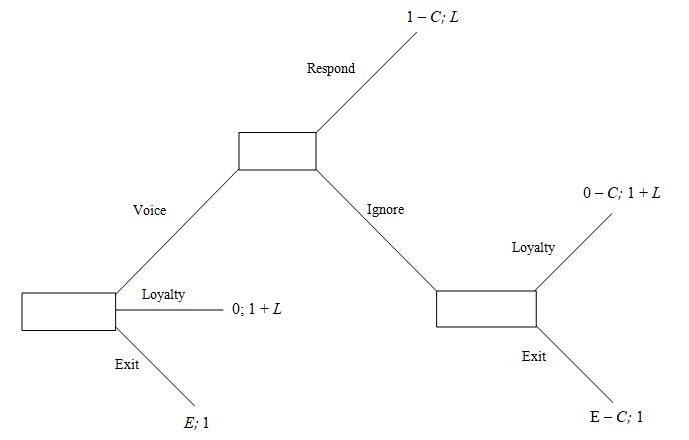Ans: d
a. Ninth
b. Eleventh
c. Thirteenth
d. Fifteenth
e. Seventeenth
ANS: E
You might also like to view...
Which of the following is a function of state legislators?
A. approval of international treaties B. administer public policy programs directly C. confirmation of presidential nominations D. ratify proposed amendments to the U.S. Constitution E. originate impeachments against senators
As commander-in-chief, the president has which of the following roles?
A. Is the symbolic leader of the military B. Acts as the ultimate decision maker in military matters C. Makes military decisions, but only with the approval of the joint chiefs of staff D. Has limited authority and needs the secretary of defense's approval E. Is obligated to meet with the joint chiefs of staff, and usually takes their advice
What is the expected outcome of the game if you use these payoff values?
Below is the Exit, Voice, and Loyalty game between the state and the citizen.Recall that E is the payoff that the citizen gets when she exits, L is the payoff that the state gets from retaining a loyal citizen, 0 is the payoff that the citizen gets from remaining loyal, and C is the cost that the citizen must pay for using voice.
Let E = 0.5, let L> 1, and let C = 0.25.

A. citizen uses voice, state responds
B. citizen uses voice, state responds, citizen exits
C. citizen exits
D. citizen remains loyal
E. citizen uses voice, state ignores.
Which of the following historical events/cases was identified as being the biggest test of our federal system?
a. McCulloch v. Maryland b. South Dakota v. Dole c. New Deal d. Civil War